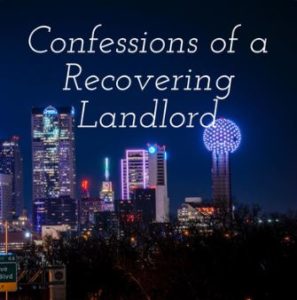
Property taxes are usually paid by the landlords, so tenants don’t need to worry about them, right?!? Not even close-listen to our podcast to clear up confusion. Because, while landlords may write the check, tenants actually pay for the property taxes as part of the operating expense reimbursements they pay to the landlord. Basically, the lease will state how the taxes get paid but rest assured, they always funnel down to the tenants. Leases provide for the landlord to collect a tenant’s share of expenses including property taxes. Landlord’s either charge for them separately or they are built into the base rent.
The property tax provision defines the respective obligations of the landlord and tenant for real property taxes. Landlords write the leases so the definition has expanded over the years to include every type of tax assessed against the property, special assessments like for improvement districts, property tax consultants to try to reduce taxes, franchise taxes, and sometimes even part of the landlord’s taxes. While Texas doesn’t have a corporate income tax, it does have a franchise tax. When school finance reform happened a few years ago, the legislature reduced property taxes slightly and increased the franchise tax. Landlords saw through that and changed leases to allow them to charge tenants for the franchise tax.
Special assessments have various names but in the simplest terms, they are assessments or taxes levied against small defined areas for improvements to that area. For example, a historic district could form a special assessment area where all the owners agree to pay a small tax which can be used to pay for additional security to maintain landscaping and signage, and possibly improve roads.
Exactly what is meant by “fully-assessed” when referring to a building? A new building may not be fully-assessed for a year or two as far as its tax base is concerned. Therefore, the taxes will be very low to begin with and then increase in subsequent years as the building gets built. If the lease will be triple-net, you should just know this and build that into your assumptions of future cost. If you are negotiating a gross lease with a base year, however, you should try to negotiate a difference base year for taxes than for other expenses.
Commercial properties are often assessed for tax purposes far less than true market value. If a building sold for $25MM, for example, and it’s currently on the tax rolls for only $20MM, the taxes could potentially increase by 25% in one year. In that case, it doesn’t matter whether leases are triple-net or gross with a base year, tenants will be hit with the increase. What about putting a cap on expenses, to include taxes? Well, good luck. At best, the landlord will allow a cap on controllable expenses but taxes are always considered uncontrollable expenses.
Some building owners will hire a tax consultant who specializes in protesting the assessed values of properties. These consultant offices are often partially staffed by people who worked for the appraisal district in the past. The landlord pays them to evaluate the value fo the building and go argue on his behalf. Suing the appraisal district is always an option…..but not a good one.
Always pay attention to the taxes!
Bob Gibbons is a Real Estate Advisor & Tenant Advocate (also known as a tenant rep) with REATA Commercial Realty, Inc. which is a tenant advisory firm based in Plano, Texas. Bob serves companies in Plano, Frisco, McKinney, Allen, Richardson, Addison, Dallas and the surrounding areas and specializes in companies which lease or buy office and warehouse properties.
